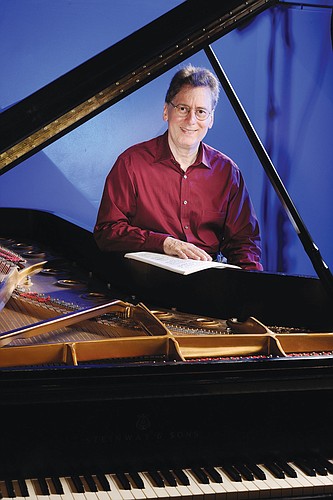- December 26, 2024
-
-
Loading

Loading

The Hyatt Sarasota will turn into a mini-campus conservatory in June when the 60 college-aged students participating in this year’s Sarasota Music Festival check in.
The students will convene under the guidance of 40 professional and veteran musicians (some of whom are festival alumni) for a more than two-week-long dive into music study, practice and performance. The result will be a 100-person musical supernova of musicians both young and experienced.
The dean of the campus is Robert Levin, 67, who has served as artistic director of the festival for nearly a decade and taught in it for 35 years.
But even after decades, Levin treats his job with the urgency of a new teacher.
“We try in every encounter with a student to do life-changing things,” says Levin. “We have a critical responsibility and an emotional and dramatic responsibility in teaching these students, and the amount of progress that can happen between coaching and the final performance can be enormous.”
The next two festivals will be Levin’s encore performances as organizer.
Levin will take on an emeritus position beginning with the 2017 festival. He will continue to serve as a faculty member and adviser.
A committee similar to the one used to recruit Sarasota Orchestra Artistic Director Anu Tali is searching for festival’s new artistic director.
Joseph McKenna, president and CEO of Sarasota Orchestra, the parent company of the festival, praised Levin’s leadership.
“Bob Levin is unparalleled in his musical brilliance as a teacher and a scholar,” McKenna says. “I think single-handedly, his musical prowess and his extraordinary abilities is in and of itself a legacy.”
Levin took over the organizer role a decade ago from Paul Wolfe, former artistic director of the orchestra, who founded the festival in 1965 and ran it for 40 years.
What started as a one-week summit 50 years ago now requires organizers to sift through nearly 500 video auditions from conservatory and college students from throughout the globe.
Levin became a visiting faculty member at the festival in 1979.
After becoming director, he led the festival through the recession and a reorganization that reduced the number of students from 90 to 60 selected from auditions.
Despite the changes, he describes his approach as, “If it ain’t broke, don’t fix it.”
He follows the model that Wolfe established during his 40 years of organizing the festival with a mix of lectures, performances and small chamber performances by students and faculty.
Levin said teaching has always been at the heart of his musical passion.
“Speaking personally, there is no greater satisfaction that I can have (other) than inspiring, challenging, mentoring young musicians and helping them to rise to the pinnacle of the professions,” says Levin. “Teaching is a sacred responsibility to me, and it’s one that all of the faculty takes seriously, and the community has the very special opportunity to have the best and brightest young artists to play for them.”